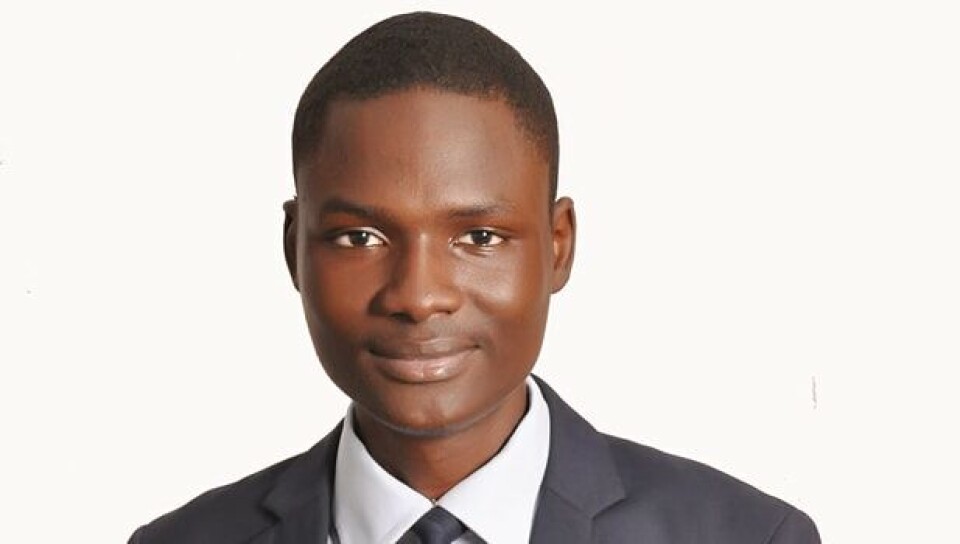Copyright : Re-publication of this article is authorised only in the following circumstances; the writer and Africa Legal are both recognised as the author and the website address www.africa-legal.com and original article link are back linked. Re-publication without both must be preauthorised by contacting editor@africa-legal.com
The Last Hope for the Common Man

In Nigeria 50 000 undergraduate students are enrolled to study law at 55 universities. Atiku Jafar from Jalingo in Taraba State in the north-east is president of the Law Students' Association of Nigeria or LAWSAN. He spoke to Africa Legal.
What does LAWSAN do?
This is the umbrella body for all undergraduate law students. As the apex body, it amplifies law students’ voices on national issues, ensures their welfare and coordinates their affairs at the national level. We also undertake legal research and training, human and students’ rights advocacy, etc. As conscious citizens, we contribute to national development through our activities.
What are some issues LAWSAN is dealing with?
We are focused on building institutions that will outlive all of us. I intend to create a practical framework for LAWSAN’s continuous thriving. We’re faced with issues ranging from the standard of legal education, human rights violations, and so on, hence the institutionalization of our directorates of research and training, students’ rights, legal aid, female law students’ forum, etc.
Goals like these require huge resources which no students’ body has the capacity to shoulder, and that means funding is a major constraint.
Could you give an overview of legal education in Nigeria?
There’s much to be talked about, and the most salient is the challenges of legal education, principal among which are: quality, regulation, and cost.
The quality of legal practice is rapidly declining, and that is a result of the falling standard in legal education. The profession needs to reinvent itself to meet contemporary realities. A significant part of our curriculum is dated and obsolete, and law teaching is still theory-based, rather than practice-driven.
What is being taught does not compare with what is obtainable at the Nigerian Law School, and that explains the massive failure there.
(All who graduate with a law degree must pass through the Nigerian Law School before they can practise. The law school has six campuses.)
Rather than hastily patched-up conjectures, our law faculties should be inclined to clinical legal education.
Secondly, the fusion of regulatory powers between the Nigerian Universities Commission and the Council of Legal Education breeds uncertainty and has resulted in power tussle between the two as to who has what regulatory powers over legal education at university level. Because of its peculiarity, legal education should be placed squarely under the Council of Legal Education to avoid bottlenecks. These include disparity in our academic calendars and the incessant strikes that disrupt academic activities in universities.
Lastly, the exorbitant fees of the Nigerian Law School must be addressed by the government to enable average and indigent Nigerians to access legal education.
What role can lawyers play in resolving some of the bigger issues facing Nigeria?
Nigeria is bedeviled by corruption in the judiciary, unaccountability from the legislature and tyranny of the executive arm of government. Corruption is deadliest when it involves the judiciary, an institution perceived to be ‘the last hope for the common man’. If water chokes you, what do you take to wash it down?
The legislature houses self-serving politicians who are unaccountable to their constituents. The indiscretions of the executive are manifest in its undue interference in the judiciary, desecration of judicial office and flagrant disregard of court orders.
As agents of social change and ministers in the temple of justice, lawyers have a duty to safeguard the rule of law, as this will create an egalitarian society.
What is the role of a lawyer in building a democratic environment?
The law is rooted in society, and lawyers are agents of social engineering. A lawyer must, first of all, inhabit the ethics and etiquettes of the legal profession, and secondly, uphold and sustain the ethos of democracy in the society. Anything short of this would breed an utterly undemocratic society where might is right, or no society at all.
Who inspired you to study law?
My mother went through a college of legal studies, but family and work didn’t allow her to build on her career to the bar. Though not a lawyer, my father, and day-one tutor, had great admiration and bias for law, and I’d say the duo played a great deal in my decision to study law.
Where did you go to school?
I had my basic and secondary education in Jalingo, after which I proceeded to Ahmadu Bello University, Zaria in Kaduna State where I am now cutting my teeth preparing to becoming a lawyer. I’m in the fifth year of my LL.B degree.
Were there defining moments in your childhood?
As a primary school pupil, I was double-promoted at the instance of my school, and that shaped my life greatly. Secondly, my sudden career shift was startling. While being a science student, I took art courses at home to enable me study law. Upon completion, I had the requisite qualifications and opportunity to study medicine or any of the top science courses on one hand, and law on the other. With the two callings at my disposal, the choice I took was the most defining in my life.
Africa Legal is delighted to partner with LAWSAN providing access to practical online learning courses and job opportunities to their membership.
To register your early interest in our next course 'Practical Corporate Governance Course for the Modern African Lawyer' designed and delivered by UCT Law@work please email your name and email address to learn@africa-legal.com
